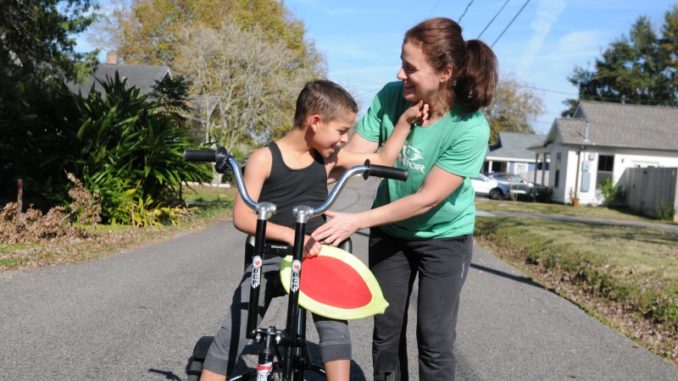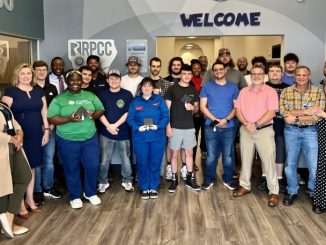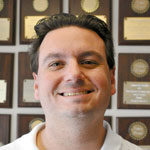
People describe the flu as a nuisance, or an uncomfortable ordeal, or perhaps a major inconvenience.
Virtually no one calls it a blessing. But for Destrehan’s Tara Schlosser and her 8-year-old son, Stefan, that’s exactly what it was.
“It was a miracle,” Schlosser said.
First, some background: Stefan suffers from a severe form of epilepsy. He is the biological son of Schlosser’s first cousin; his birth parents battled and eventually succumbed to drug addiction in January of 2013, leaving Stefan orphaned. Schlosser adopted him two months after that, bringing a young boy in desperate need of a loving and caring home into hers.
He was officially diagnosed with Lennox-Gastaut syndrome, a type of epilepsy with multiple different types of seizures, particularly tonic (stiffening) and atonic (drop) seizures. He suffered seizures multiple times a day — at one time, it was as many as 10 a day — and had to be on several different kinds of anti-convulsion medication. He wears a helmet at all times to protect his head from a fall and their home has been suited with numerous precautionary measures to make it as safe as possible for him.
In short, it made for a highly difficult and stressful life, for child and mother alike.
Back to the flu.
While on a family trip to Tennessee in early 2017, a flu outbreak took hold of everyone on the trip, including Stefan. He, along with the rest of the family, took treatment to reduce the symptoms and get back to health.
But a strange side effect came of it: since that trip, and since the flu bout, Stefan’s seizure frequency has dropped substantially — to say the least. He may have one in a given week now, instead of the 10 a day he peaked at before.
“It’s amazing. Since that vacation, the seizures have really diminished,” Schlosser said. “The doctors told us, ‘Wow, I wish we could say it was something we did.’ He’s free and happy … it’s really awesome.”
It was an unexpected, and very welcome, development. There’s no known cure for Lennox-Gastaut, so Schlosser had every reason to believe this would simply be life as she’d know it with her son. The condition still exists with him and affects him – he is developmentally delayed and is non-verbal — the reduction in seizures have in many ways given him his life back.
Before, Stefan couldn’t sit at a table to eat, without being confined to his wheelchair. He has control of his body now, where he didn’t before – he can now get himself up out of a seated position. He can run, play on his trampoline, and ride his three-wheel bike with assistance from an adult. Schlosser has a four-foot swimming pool for him to maneuver around in, and she says he loves that – and playing outside in general.
“All these things he could never do, and he’s able now,” Schlosser said. “And he laughs all the time. He never showed a lot of emotion before.”
Though she can’t be certain a bout with the flu bug got him to this new place, she doesn’t see another explanation.
“The flu’s always a pretty bad thing to deal with, but I don’t know what else to attribute it to,” she said with a laugh. “It’s the only thing that changed from before.”
They can now focus on reaching new goals. Stefan attends Norco Elementary where he’s in an individualized education program. Schlosser said the plan is to start working on his speech. She suspects he suffers from sensory processing disorder, which may be part of what has curtailed that part of his development, and she’s educating herself on that and potential solutions.
But the largest, most daunting, hurdle for him seems largely behind him, making these new possibilities all the more tangible.
“It’s easier … don’t get me wrong, it’s still hard,” Schlosser said. “But to see him able to do these things is great. It feels so great to see.”





Be the first to comment